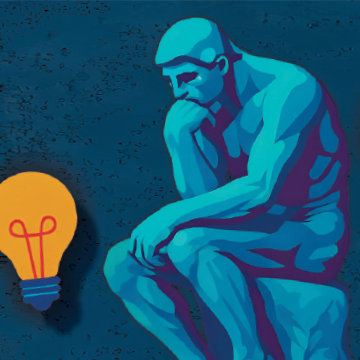Originally published in the 2025 issue of the School of Liberal Arts Magazine
In the ongoing “Great Liberal Arts Debate,” the most compelling arguments often come from those who have lived its impact. We caught up with four distinguished School of Liberal Arts alumni, each with their own diverse career path. They shared how their Tulane education — be it rooted in core curriculum or more interdisciplinary in nature — profoundly shaped their career paths and continues to inform their success in an ever-evolving world.
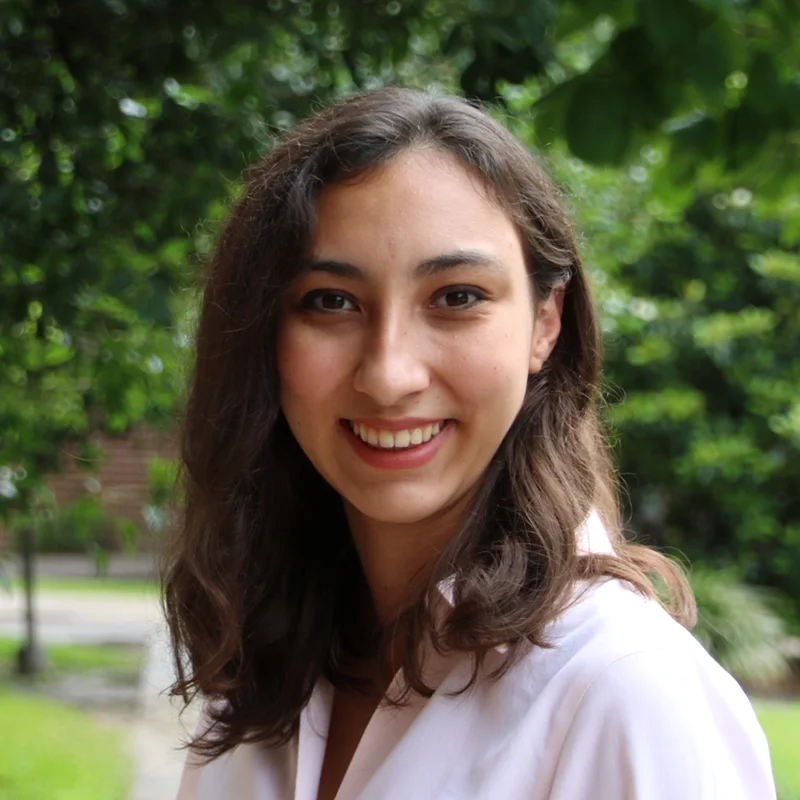
Sophia Gutierrez (SLA ’21)
English, Classical Studies, SLAM Minor, Simon & Schuster Sales Associate
I approach this topic from a very unique perspective. My solution to this whole debate is that it is a trick question, though, because they both matter, so it works out.
Every single person I work with was an English major. So, while it is a very direct connection, I don’t think the specific things I learned while getting my English degree directly correlate to my day-to-day role. I’m a salesperson — I’m not editing. I’m not trying to tell someone how to make their book sound better. But I am using persuasive writing, critical thinking, and creative problem solving.
One of the favorite things I did at Tulane was take History of the Canon of American Literature, with Dr. Ed White. I learned why we included certain pieces in the canon. What caused changes? I would make the argument that what you’re reading and what you’re learning is almost irrelevant, as long as you’re developing certain skills. And I think the thing that’s most important to learn is general history. You know the classic line: if you don’t learn history, you’re doomed to repeat it. Which is, I think, very topical for our current political moment.
The aptitudes that I learned are far more relevant to whatever I choose to do for the rest of my life. I’m 25. My career could go many different ways. Currently, it’s publishing, and I love it, but I could do so many other things. When you choose a major at 18, you can’t know for a fact that it’s going to translate to your career. Yes, it’s useful to have read the classics and have that common knowledge. But I’d also argue that in a world where people are reading less and less, getting people to read anything is more important than getting them to read something specific, because there’s inherent value in just about anything you read.
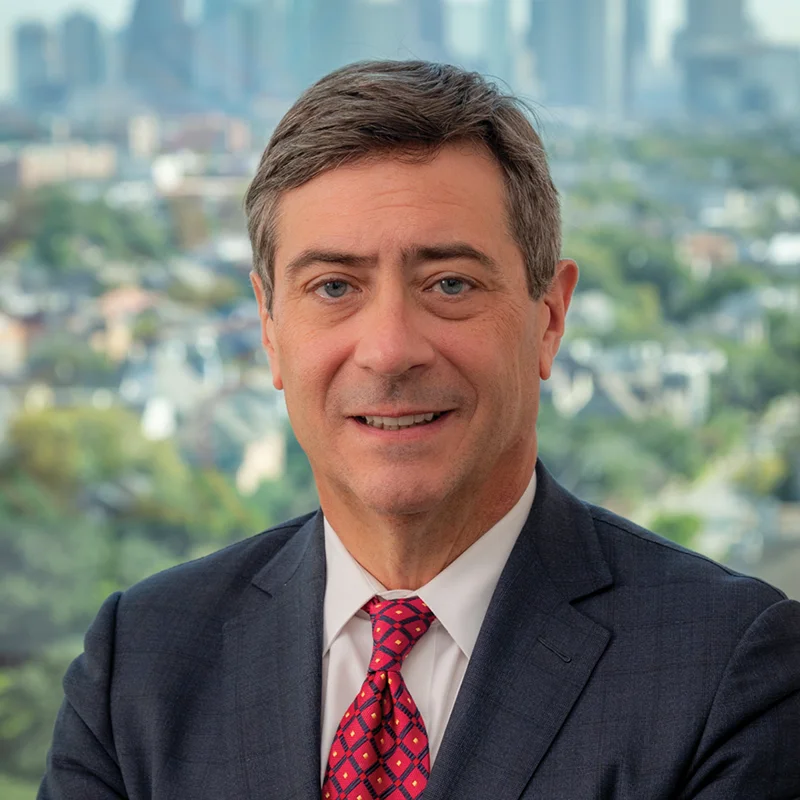
John Strasburger (A&S ’86)
Political Science and International Relations, Litigation Trial Lawyer
What I do for a living requires a law degree. And so, from that standpoint, nothing that you know before the law degree is disqualifying in any way, but the attributes that are most important for being any kind of lawyer are the ability to read, write, and communicate clearly. It is also important to be able to tear an issue apart, dissect it, understand it, and analyze it.
When I was in school, the engineering students and the business students had so many requirements that they had to take. They did not have the time to dabble in many of the courses within the liberal arts. Within the liberal arts, you have a lot more flexibility to take Psychology classes that may discipline your mind in a different way than the study of Economics.
When I’m looking for young talent to hire, I don’t care if they studied Biology, Economics, Engineering, or played the oboe in the Rice University Symphony. I care that they learned how to analyze all the possibilities and effectively communicate them in written and oral form.
The worst possible outcome is to study something you’re not particularly interested in. Your career is a fool’s errand. If you’re the right kind of student, you can learn important skill sets in any discipline.
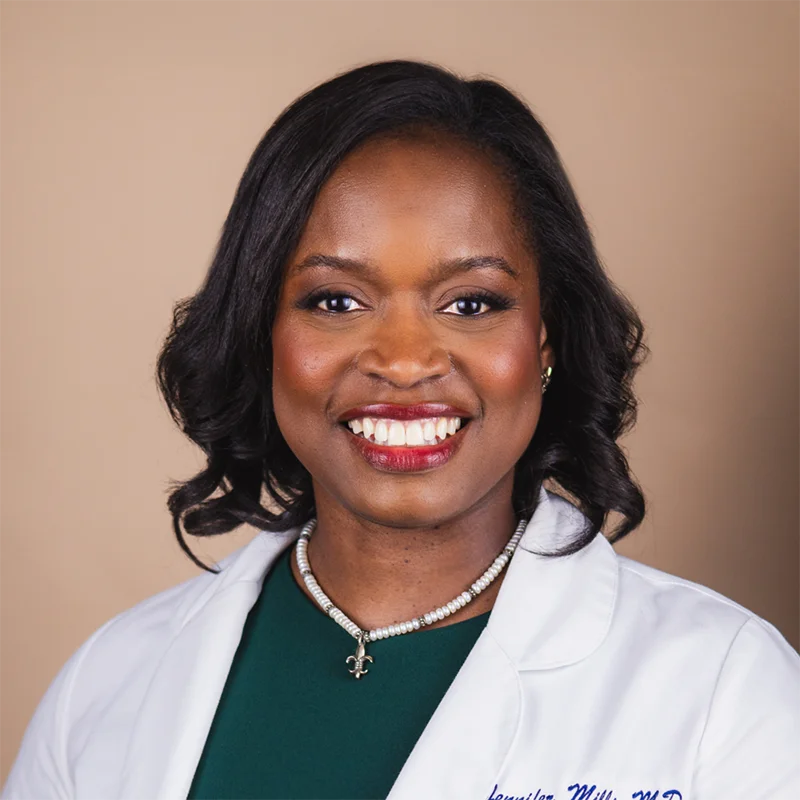
Jennifer Mills (SLA ’01)
Music Vocal Performance, Internal Medicine Doctor
As a doctor who also has a BFA in Musical Vocal Performance, I obviously needed to take a lot of science classes as an undergrad. But the truth of the matter is that all of the pre-med prerequisites are not of use to me in my current role. You learn to memorize and memorize efficiently, but the actual assimilation of information, restructuring, and making connections to health issues is entirely liberal arts thinking — not science. The actual creative thinking and problem solving, which I do every day as an internist, are not based on or reinforced by any Physics class or Calculus class that I took.
With science, something exists. There is a truth, and we have to find the truth and excavate it. With the arts, anything can be true, and we can create something new. I think the critical thinking of other disciplines, like Philosophy or English, is where you learn to think beyond memorization and regurgitation.
When communicating with patients, I often reference something from classical literature rather than using scientific vocabulary. I think people are more conversant in arts and disciplines, versus having to learn the mathematical thinking of Chemistry or Physics. I think I’m better at it because of my liberal arts background.
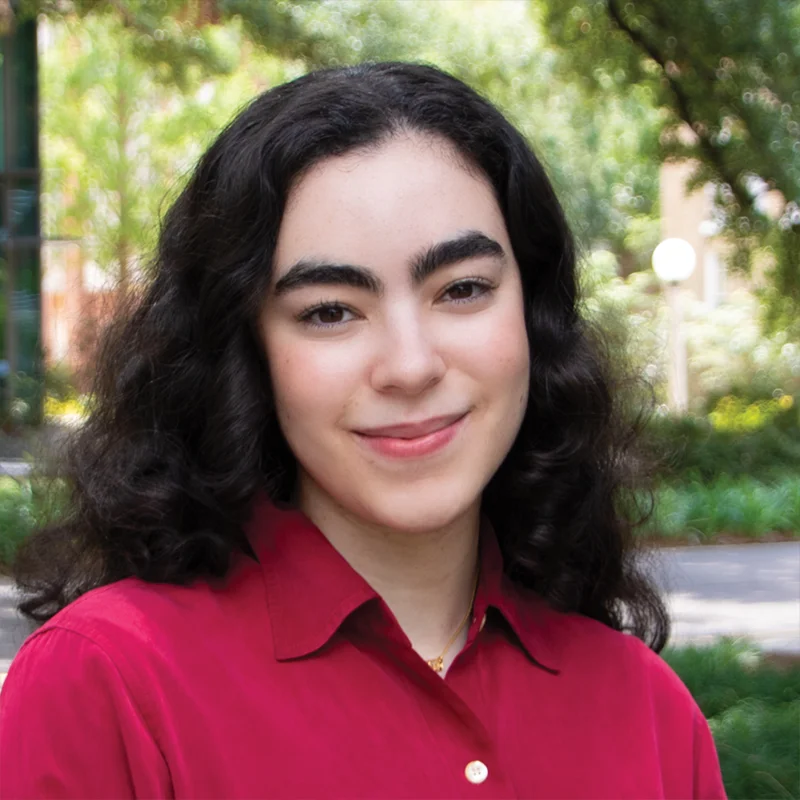
Maria Cordero (SLA ’25)
Philosophy and International Relations, Philosophy PhD Candidate
There is, in Philosophy, I think, the advantage that you can study anything under that label. There’s philosophy of art, philosophy of love, and philosophy of action. I read political philosophy in my Political Science classes. Reading allows you to choose what to believe in, but you still have to go through the content. You might sometimes say, “I took away nothing from that,” but other times you might say, “This is the most valuable thing I’ve ever learned.”
I do think a lot of literature overlaps with philosophy. So, I don’t think they’re self-exclusive in any way. And this is a popular opinion, but there is a certain curiosity that you need to have in order to appreciate literature. It’s a practice of empathy. It’s a practice of nurturing your mind, and being human is part of that. You might hate the book outlined on your class syllabus, but the practice of reading it is so much more valuable than avoiding it.
I think there are two sides to Philosophy being so popular. The main one is that it has become a means to an end. So, it’s not necessarily that Philosophy attracts people because they are in it for the love of knowledge. It’s more like, if I study Philosophy, then I can go to law school, and it looks good. Or if I study Philosophy, I can do X and Y, and I’ll be employable. But you sit in Philosophy classes, and there’s a lack of engagement. A lot of people do find it interesting, but you will find very few people who will continue with Philosophy after undergrad. That’s something that I’m grappling with, too, being in classes where people aren’t as engaged and are only there for a career. But is this what liberal arts is actually about? Just a career?


